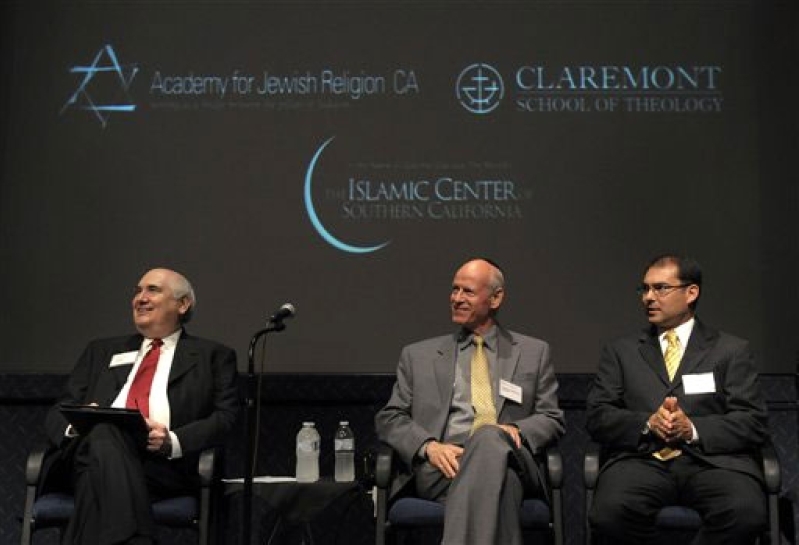
A Southern California seminary affiliated with The United Methodist Church is opening its doors to Muslims and Jews and offering clerical training for those of other Abrahamic faiths, school officials announced Wednesday.
"The world is changing. And so is Claremont," states Claremont School of Theology on its website.
The unconventional move is part of the University Project, the school's effort to promote interreligious cooperation and to teach students to "recognize the legitimacy and integrity of the other religious traditions."
It's a vision that's being shared by the Academy for Jewish Religion and the Islamic Center of Southern California.
"The world suffers from our lack of knowledge from each other and the traditions that rule us," said Rabbi Mel Gottlieb, president and dean of the academy's California chapter. "We must look ourselves in the mirror and begin to think much larger thoughts of love than remain crippled by our fears."
According to the Rev. Jerry Campbell, president of the Claremont seminary, the ambitious collaboration is the first graduate consortium of its kind.
"Today we're making history," he said Wednesday at a press conference.
"Christian ministers, Jewish rabbis and Muslim imams and eventually clerics from other religions will be educated side by side, each in their own traditions but also with classes in common so they learn to work together to address the problems that face humanity today and that can only be solved if religions work together across their boundaries," he explained.
The project, which was conceived in 2006, has been met with some criticism. Some of Campbell's colleagues are feeling threatened, he said, and want Christians to teach students about other faiths, rather than join hands and share curriculum with Jewish and Muslim institutions. Even at the Academy for Jewish Religion, one faculty member has taken a leave of absence in dissension.
Some have also suggested that by pursuing the project, Campbell has renounced Christianity.
But the Claremont president made clear that they are not trying to create a hybrid and that students will still be educated rigorously in their own religious traditions.
"If you come here as a United Methodist, my hope is that you leave here as a much wiser United Methodist," he noted.
Not only will the students be instilled with a strong sense of their own religious identities, but they will also gain understanding of other religions.
"There is nothing bad about being willing to reach across religious boundaries in order to show compassion or to get things done," Campbell stressed. "We want our future religious leaders to understand the landscape in which they will be leading. We want them to be able to see the other as neighbor, friend and co-worker."
Interreligious education is a necessity, he underscored.
Najeeba Syeed-Miller, assistant professor of Interreligious Education and Claremont's first Muslim faculty member, concurred, stating, "Our goal is not to dilute our faith but rather to be better Muslims, Jews, Catholics, Hindus, Protestants, Buddhists ... and by being so, together we will tear down walls of hate that seek to separate us."
The University Project has strained relations between the seminary and The United Methodist Church, which suspended its support for the school earlier this year, as reported by the Los Angeles Times. But Campbell reported on Wednesday that they are "working it out" and he expects the denomination's blessing. The UMC had sent a team to investigate Claremont's new effort and Campbell is optimistic that the review went well.
As the seminary embarks on a new multi-religious path, Campbell expects there to be bumps on the road and disagreements among partners. But by remaining committed to one another in trust and in love, he believes they will have "begun the work of healing the world."
Claremont School of Theology has functioned as a Methodist theological school since its foundation in 1885. The school embraced an ecumenical vision upon its move to Claremont, Calif., in 1957 and the University Project is the latest expression of this commitment to openness and diversity.
Shared classes among the three religious institutions will begin this fall.







